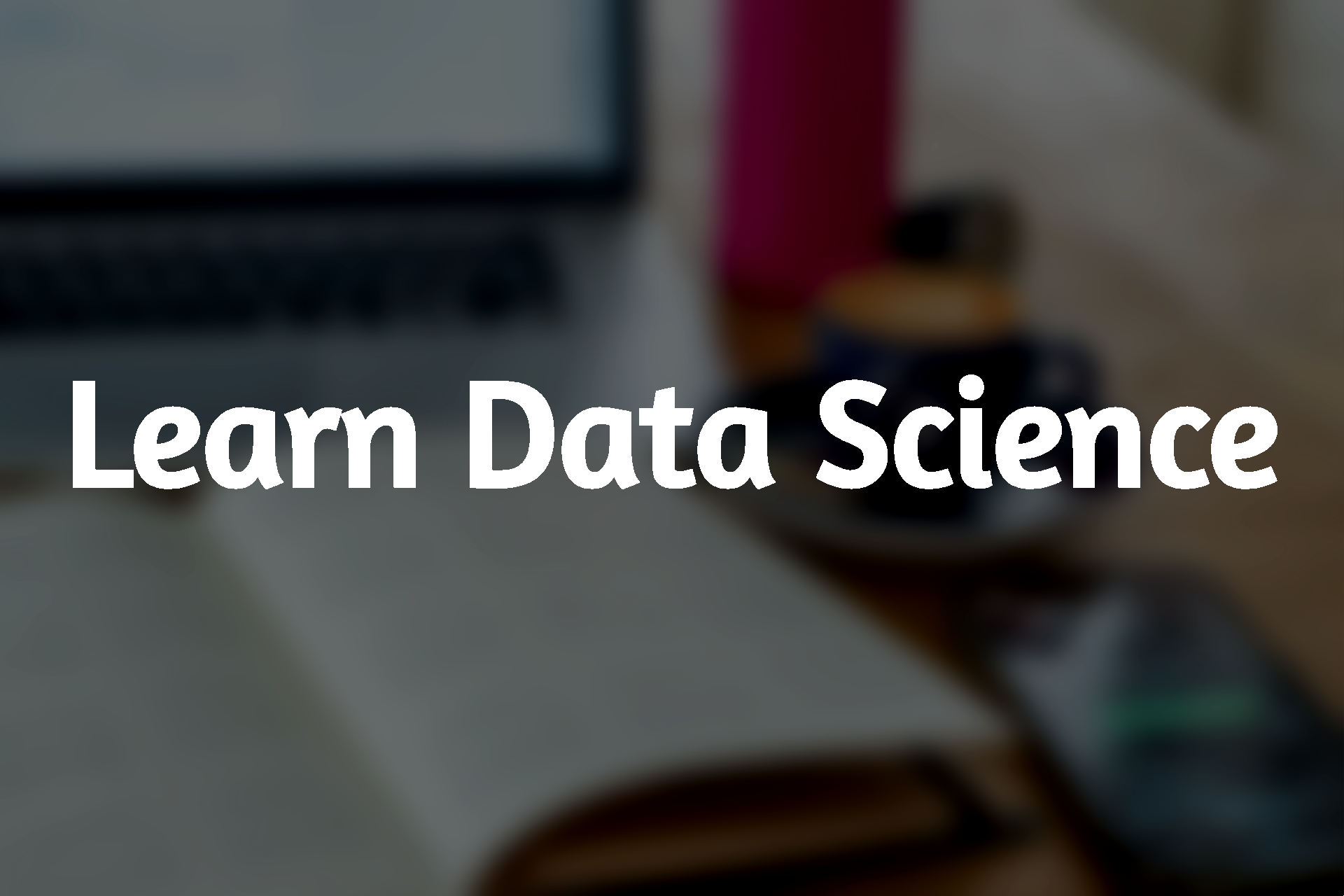Learn Data Science
In today’s data-driven world, the field of data science has emerged as a powerful discipline that enables us to extract valuable insights from vast amounts of information. From business intelligence to scientific research, data science has revolutionized how we analyze, interpret, and utilize data to make informed decisions and drive innovation. If you’re a college student intrigued by the fascinating world of data science, or if you simply want to enhance your understanding of this rapidly growing field, this article is here to guide you on your journey to learn data science.
Learn Data Science: The Importance of Data Science in the Modern World
Data science has emerged as a transformative force in the modern world, revolutionizing industries, driving innovation, and shaping our everyday lives. In an era where data is generated at an unprecedented pace, the ability to extract valuable insights from this vast sea of information has become a critical skill. Let’s explore the key reasons why data science holds immense importance in today’s society.
Data-Driven Decision-Making:
In today’s data-driven world, organizations of all sizes rely on data science to make informed decisions. Data scientists employ sophisticated techniques to analyze and interpret data, uncovering patterns, trends, and correlations that guide strategic choices. Whether it’s identifying customer preferences, optimizing business processes, or predicting market trends, data science provides the tools and methodologies to make evidence-based decisions with a higher probability of success.

Business Transformation:
Data science has become a catalyst for business transformation. By harnessing the power of data, organizations can unlock valuable insights that drive innovation, efficiency, and competitive advantage. Through data analysis, companies can identify untapped market opportunities, optimize their operations, and deliver personalized customer experiences. From predictive analytics to recommendation systems, data science enables businesses to stay ahead in a rapidly evolving market landscape.
Advancements in Healthcare:
Data science plays a pivotal role in transforming healthcare by improving patient care, disease detection, and medical research. Through the analysis of large healthcare datasets, data scientists can identify patterns that lead to early diagnosis, personalized treatment plans, and improved patient outcomes. Additionally, data science facilitates the integration of electronic health records, enables real-time monitoring of patient vitals, and supports the development of precision medicine.
Enhancing User Experiences:
In the digital age, data science is behind the seamless user experiences we encounter daily. Recommendation systems on e-commerce platforms, personalized content suggestions on streaming services, and targeted advertisements on social media—all these rely on data science algorithms. By leveraging user data, preferences, and behavior, companies can provide tailored experiences that resonate with individual users, leading to higher engagement and customer satisfaction.

Tackling Social Challenges:
Data science has the potential to address significant social challenges and drive positive change. By analyzing social data, researchers can gain insights into public health issues, identify patterns of social inequality, and develop evidence-based policies. Furthermore, data science contributes to disaster response efforts, resource allocation in underserved communities, and environmental conservation. Through the power of data, society can make informed decisions to address pressing social issues.
Learn Data Science: Essential Skills and Tools
To become a proficient data scientist, it is essential to develop a diverse set of skills and familiarize yourself with the tools of the trade. In this section, we will explore the key skills and tools that will empower you to excel in the field of data science.
Programming Skills:
One of the fundamental skills for data scientists is proficiency in programming languages such as Python and R. Python is widely used in the data science community due to its versatility, extensive libraries, and ease of use. R, on the other hand, is popular for statistical analysis and visualization. Mastering these programming languages will enable you to manipulate data, implement algorithms, and create insightful visualizations.
Statistics and Mathematics:
A strong foundation in statistics and mathematics is crucial for data scientists. Concepts such as probability, hypothesis testing, regression analysis, and linear algebra form the backbone of data science. Understanding these principles will allow you to make informed decisions, design experiments, and analyze data accurately. It is recommended to brush up on these topics and explore statistical libraries and packages within programming languages.
Data Manipulation and Analysis:
Data scientists work with large and complex datasets, requiring the ability to clean, preprocess, and transform data. Familiarity with data manipulation libraries, such as Pandas in Python or dplyr in R, is essential. These libraries provide powerful tools for data wrangling, merging, filtering, and aggregating, enabling you to extract meaningful insights from raw data efficiently.
Machine Learning:
Machine learning is at the core of data science, enabling algorithms to learn from data and make predictions or classifications. Understanding various machine learning techniques, such as supervised learning (e.g., regression, classification) and unsupervised learning (e.g., clustering, dimensionality reduction), is essential. Explore popular machine learning libraries like sci-kit-learn in Python or caret in R, which provide a vast array of algorithms and tools for model development and evaluation.
Data Visualization:
Communicating insights effectively is a crucial skill for data scientists. Data visualization allows you to present complex information in a visually appealing and understandable way. Explore visualization libraries like Matplotlib, Seaborn, or ggplot2 to create insightful charts, graphs, and interactive visualizations. Understanding visualization principles and choosing appropriate visual representations will enhance your ability to convey compelling narratives through data.
Domain Knowledge:
While technical skills are vital, having domain knowledge in a specific field can significantly enhance your effectiveness as a data scientist. Understanding the context, challenges, and specific data requirements of a particular industry or problem domain allows you to apply data science techniques more effectively and derive relevant insights. Consider exploring domains such as finance, healthcare, marketing, or environmental science to develop expertise that complements your data science skills.
Learn Data Science: Key Concepts
To embark on a successful journey to learn data science, it is crucial to grasp the key concepts that form the foundation of this discipline. In this section, we will explore the essential concepts and techniques that will empower you to navigate the world of data science effectively.
Exploratory Data Analysis (EDA):
Exploratory Data Analysis is a critical initial step in data science, where you dive deep into the dataset to gain insights and uncover patterns. Through visualizations, summary statistics, and data profiling, EDA helps you understand the distribution of variables, identify missing values, detect outliers, and assess data quality. By mastering EDA techniques, you can effectively prepare the data for further analysis and gain valuable insights.
Data Cleaning and Preprocessing:
Real-world data is often messy, containing errors, inconsistencies, or missing values. Data cleaning and preprocessing involve techniques to handle these issues and ensure the data is suitable for analysis. Learn techniques such as imputation for missing values, outlier detection, and handling categorical variables. Cleaning and preprocessing data are vital steps in ensuring the accuracy and reliability of your analyses and models.
Statistical Analysis:
Data science heavily relies on statistical techniques to draw meaningful conclusions from data. Learn the basics of statistical concepts such as probability distributions, hypothesis testing, and confidence intervals. These concepts enable you to make informed decisions, validate assumptions, and quantify uncertainty. Understanding statistical analysis is essential for interpreting results, assessing significance, and drawing reliable conclusions from data.
Machine Learning Algorithms:
Machine learning is a core component of data science, enabling models to learn patterns and make predictions from data. Familiarize yourself with popular machine learning algorithms such as linear regression, logistic regression, decision trees, random forests, and support vector machines. Learn about their underlying principles, strengths, and limitations. Developing knowledge of machine learning algorithms will equip you to choose the appropriate technique for different data problems.
Data Visualization Techniques:
Data visualization is a powerful tool for communicating insights effectively. Learn different visualization techniques to represent data visually, including scatter plots, bar charts, heatmaps, and interactive visualizations. Explore visualization libraries such as Matplotlib, Seaborn, or ggplot2 to create compelling visuals that enhance understanding and facilitate storytelling with data. Visualization skills will enable you to present your findings in a visually appealing and intuitive manner.
Model Evaluation and Validation:
Once you’ve built models, it is crucial to evaluate their performance and validate their effectiveness. Learn techniques such as cross-validation, precision recall, accuracy, and F1-score to assess the performance of your models. Understand concepts like overfitting, underfitting, and bias-variance tradeoff, which affect model generalization. By mastering model evaluation and validation, you can ensure that your models are robust, reliable, and provide accurate predictions.
Learn Data Science: Learning Path and Resources
Embarking on the journey to learn data science can feel overwhelming, given the vast amount of resources available. In this section, we will provide you with a roadmap and curated list of resources to help you navigate the learning path and acquire the necessary skills in data science.
Online Courses and Tutorials:
Online platforms offer a plethora of data science courses and tutorials, catering to learners of all levels. Websites like Coursera, edX, and Udemy provide comprehensive courses taught by industry experts and renowned institutions. Consider enrolling in courses such as “Introduction to Data Science,” “Machine Learning,” or “Data Analysis with Python/R” to gain a structured learning experience and hands-on practice.
Data Science Bootcamps:
Data science boot camps offer immersive and intensive training programs that can accelerate your learning journey. These boot camps typically span several weeks and provide hands-on experience with real-world projects. Look for reputable boot camps like General Assembly, DataCamp, or Flatiron School that offer structured curricula and mentorship opportunities.
Open Source Tools and Libraries:
Leverage the power of open-source tools and libraries that are widely used in the data science community. Python, with its rich ecosystem of libraries such as NumPy, Pandas, and sci-kit-learn, is a popular choice. R, with its extensive packages like ggplot2 and caret, is also widely used for statistical analysis. Explore documentation, tutorials, and examples provided by these open-source communities to enhance your understanding and proficiency.
Kaggle and Data Science Competitions:
Participating in data science competitions on platforms like Kaggle provides a practical and competitive learning environment. Kaggle hosts a variety of datasets and challenges that allow you to apply your skills, collaborate with peers, and learn from the best in the field. Engaging in competitions not only hones your technical skills but also exposes you to different problem domains and real-world scenarios.
Data Science Blogs and Publications:
Stay updated with the latest trends, techniques, and advancements in data science by following reputable blogs and publications. Websites like Towards Data Science, KDnuggets, and DataCamp’s blog offer a wealth of articles, tutorials, and insights from experts in the field. Subscribe to newsletters or RSS feeds to receive regular updates and stay connected to the data science community.
Online Communities and Forums:
Engage with the data science community through online forums and communities to seek guidance, share knowledge, and collaborate with fellow learners and practitioners. Platforms like Stack Overflow, Reddit’s r/datascience, and LinkedIn groups provide avenues for asking questions, discussing concepts, and networking with professionals in the field. Active participation in these communities can help you gain insights, troubleshoot problems, and expand your network.
Real-World Applications of Data Science
- Healthcare: Data science is revolutionizing healthcare by enabling predictive analytics for disease diagnosis, personalized treatment plans, and improving patient outcomes.
- Finance: Data science drives financial institutions’ decision-making processes, including fraud detection, risk assessment, algorithmic trading, and customer segmentation.
- Marketing: Data science enhances marketing strategies through customer segmentation, predictive modeling, sentiment analysis, and targeted advertising campaigns.
- Environmental Science: Data science plays a crucial role in analyzing environmental data, predicting climate patterns, monitoring biodiversity, and developing sustainable solutions.
- E-commerce: Data science powers recommender systems, demand forecasting, inventory management, and customer behavior analysis, enhancing the e-commerce experience.
- Transportation: Data science optimizes transportation systems, improving route planning, traffic management, fleet optimization, and predictive maintenance.
- Social Media: Data science enables social media platforms to analyze user behavior, personalize content, detect trends, and prevent fake news and cyberbullying.
- Education: Data science is utilized in educational institutions for personalized learning, student performance analysis, adaptive assessments, and identifying at-risk students.
- Manufacturing: Data science drives process optimization, quality control, predictive maintenance, and supply chain management, enhancing efficiency in manufacturing industries.
- Sports Analytics: Data science is employed in sports to analyze player performance, optimize strategies, predict outcomes, and enhance fan engagement.
These are just a few examples of how data science is transforming various industries, driving innovation, and improving decision-making processes. By understanding the practical applications of data science, there will be more projects in data science.

